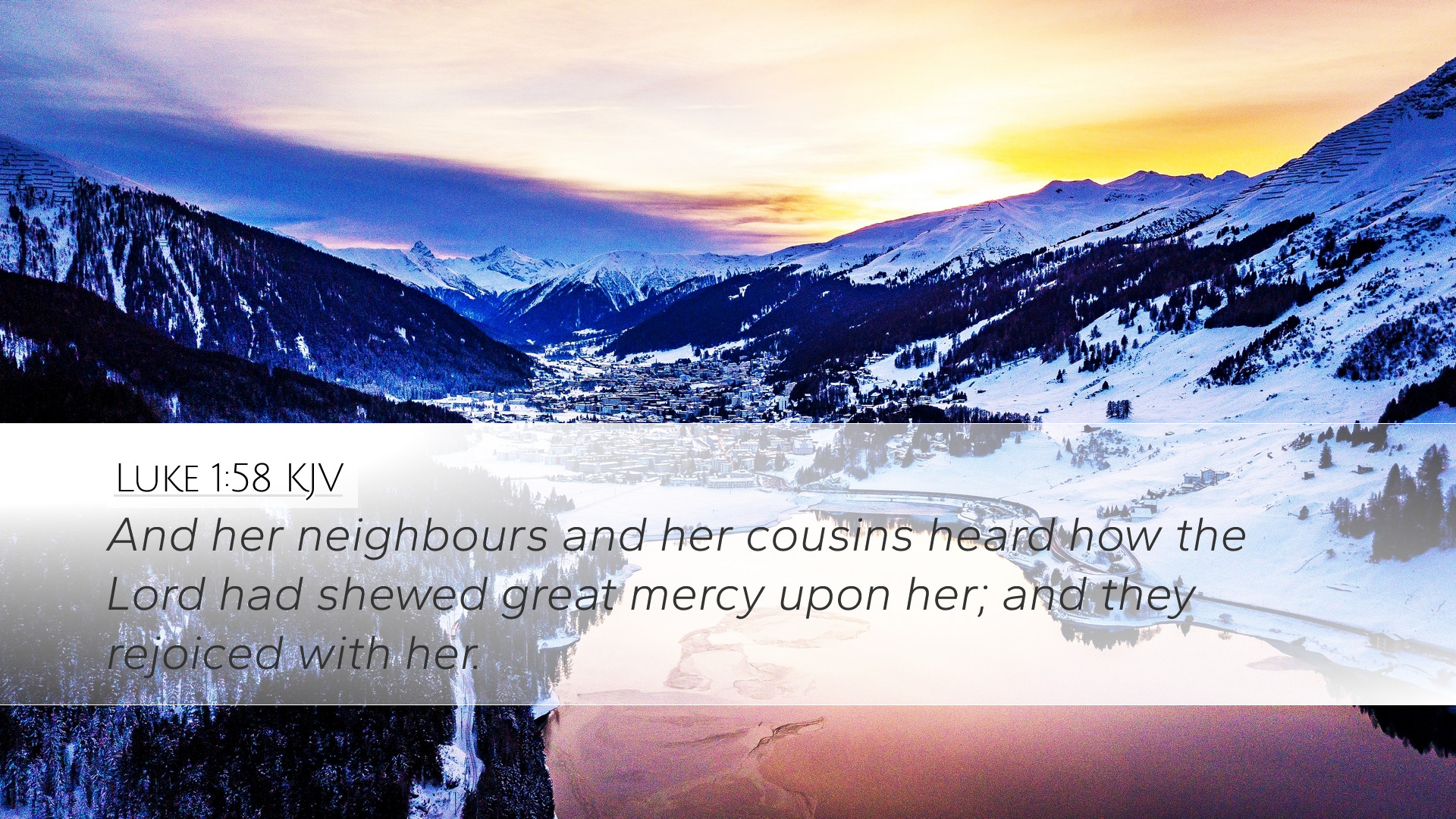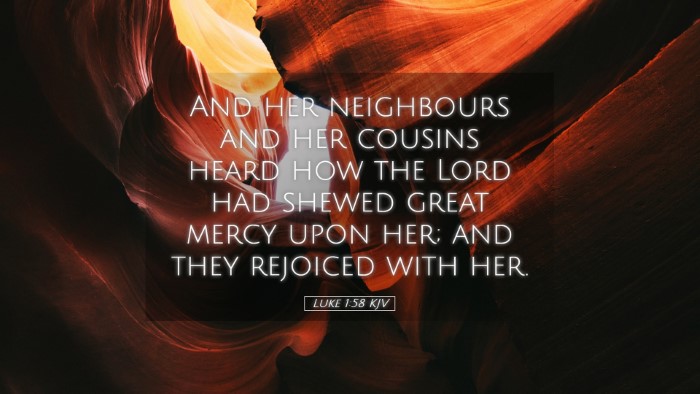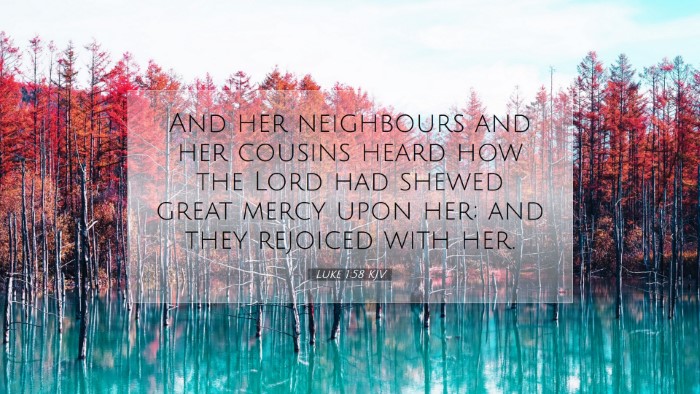Commentary on Luke 1:58
Bible Verse: "And her neighbors and relatives heard that the Lord had shown great mercy to her, and they rejoiced with her." (Luke 1:58)
Introduction
The account surrounding the birth of John the Baptist is rich with theological significance and profound insights into the workings of God’s mercy. In Luke 1:58, we see the communal response to Elizabeth's miraculous conception and delivery, reflecting the joy and the recognition of divine intervention in her life. This commentary draws from the insights of several public domain commentaries, providing a comprehensive understanding of the verse and its context.
Contextual Analysis
To appreciate the fullness of Luke 1:58, we must delve into the surrounding narrative. Elizabeth, wife of Zechariah, was initially barren but received a message from the angel Gabriel announcing that she would conceive, a promise realized in her pregnancy with John the Baptist. The culmination of her pregnancy, leading to the birth of John, marks a pivotal moment not just for Elizabeth and Zechariah but for the narrative of salvation history.
Matthew Henry emphasizes this moment as a testament to God's fidelity to His promises, illustrating the shift from barrenness to fruitfulness. The fulfillment of God’s promise results in widespread joy, signifying not just personal victory for Elizabeth but a broader expression of God’s mercy and power in the community.
Neighbors and Relatives
The reference to “neighbors and relatives” underscores the communal aspect of Elizabeth’s experience. As Albert Barnes notes, the social dynamics of the time placed strong emphasis on familial and communal relationships. The joy expressed by her neighbors and relatives conveys an important biblical theme; rejoicing in God’s mercies is often a communal affair. This reflects the interconnectedness of individuals within the community of faith.
- Celebration of God's Mercy: The collective rejoicing indicates a recognition of God’s active role in human affairs.
- Community’s Role: It highlights the importance of community involvement in celebrating the goodness of God.
Theology of Divine Mercy
At the heart of this verse is the theme of divine mercy. Adam Clarke elaborates on the term "great mercy," noting that it reflects God’s ability to turn sorrow into joy and human impossibility into divine possibility. The act of mercy shown to Elizabeth is not merely a personal blessing; it showcases God’s broader plan of redemption through the coming of the Messiah, which John would herald.
The theological implications extend to the understanding of God's character—He is merciful, compassionate, and fully engaged in the lives of His people. The joy of Elizabeth’s neighbors indicates their recognition of the mercy displayed, suggesting that they, too, are recipients of this divine grace as part of their community. In light of God's mercy, congregations are encouraged to share their testimonies of God's goodness, thus fostering a culture of gratitude and rejoicing.
Implications for Ministry
For pastors and theologians, Luke 1:58 not only serves as a narrative marker but also as a platform for ministry. Here are several implications for preaching and teaching:
- Community Engagement: Encourage congregations to actively participate in each other’s joys and sorrows, reinforcing the importance of community support.
- Divine Intervention: Highlight the significance of recognizing God’s hand in personal and communal life events.
- Celebration of Mercy: Cultivate an atmosphere of celebration in worship services where testimonies of God’s mercy are shared and rejoiced over.
Conclusion
In conclusion, Luke 1:58 serves as a multilayered verse that encapsulates themes of divine mercy, communal joy, and the hope of God's redemptive plan. By exploring the insights of Matthew Henry, Albert Barnes, and Adam Clarke, we gain a deeper appreciation for the narrative context and theological richness present in this verse. It is a call to acknowledge and celebrate the great mercies of God not only in our lives but within the fabric of our communities.


